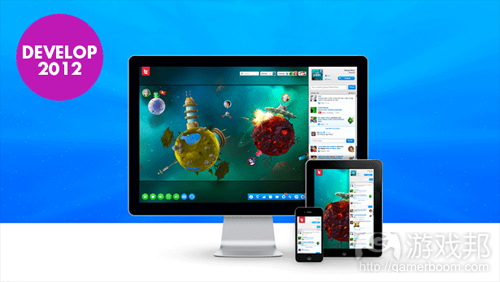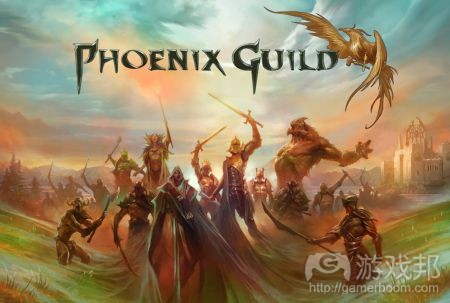每日观察:关注行业对原生应用 vs HTML5的看法(7.11)
1)Transparency Market Research最新报告预测,未来5年全球移动内容市场规模将扩大三倍左右。2011年全球移动内容产值为65亿美元,预计2017年将增长至186亿美元。
从整个全球市场来看,美国移动内容市场居于主导地位,其产值在2011年全球市场中占比30.3%;预计到2017年该地区移动内容产值将占比41%。
2)据insidemobilegames报道,Rovio日前透露公司下款游戏《Amazing Alex》将于7月12日登陆iOS和Google Play平台。
该游戏基本玩法与设置取材于《凯西的精巧设计》(游戏邦注:原版游戏由Snappy Touch和Mystery Coconut联合开发,后来Rovio收购其IP),除了其中的100个关卡之外,还支持用户自主创建关卡。
虽然该公司并未宣布游戏售价,但从Rovio过去的做法来看,《Amazing Alex》在iOS平台很可能推出付费版本,在Android平台则发布付费以及广告赞助的免费版本。
3)Flurry在EMEA(欧洲、中东和非洲)总经理Richard Firminger在最近的Develop 2012大会上表示,原生应用仍是多数开发者最大的盈利来源,目前暂时不宜对HTML5投入过多资源。
据其所称,目前市场上有5.3亿名iOS和Android用户,智能手机正以前所未有的速度向前发展,开发者在未来数年仍需致力于获取不断增长的手机用户。
根据Flurry监测数据显示,智能手机用户平均每天在应用程序上投入时间超过一个半小时(超过了2010年6月时的43分钟),而用户在网页浏览器上的平均投入时间则是72分钟;原生应用才是当前开发者需关注的领域。
4)网页游戏发行平台Turbulenz首席营销官、联合创始人Gavin Shields在最近Develop大会上指出,目前App Store前50名游戏所创收益占比高达71%,这种迹象表明后来者已难以在这个趋于饱合的市场突围。他建议开发者关注HTML5技术,已有不少浏览器支持HTML5,并且这些浏览器用户已达13亿,其用户数量仍将不断增长。
5)据techcrunch报道,手机游戏平台OpenFeint创始人Jason Citron以1.04亿美元将该平台出售给GREE之后,最近又成立新公司Phoenix Guild并融资110万美元,其支持者包括YouWeb、Accel Partners以及 General Catalyst Partners,目标是成为“后PC时代的暴雪”。
他表示自己是一个硬核玩家,但常发现无法在iPad上找到许多可玩的游戏,他希望能创造一些堪比主机和PC游戏质量的作品,计划于今年发布首款游戏。
6)据insidemobileapps报道,基于Android操作系统的掌机设备Ouya制造商Boxer8公司日前发起自己的Kickerstarter融资活动,以便推出这款售价仅99美元的掌机设备。
该公司创始人Julie Uhrman表示,尽管目前手机游戏人气上升,但电视和客厅仍是玩家体验游戏的主要场所,用户有一半以上时间是在家玩手机游戏,但有四分之三的游戏消费资金流向了视频游戏,手机游戏开发者应把握机会,借Ouya设备将手机游戏引进电视机平台。
该项目现已突破95万美元的融资目标,截止PST(太平洋标准时间)7月10日下午2:50,该项目融资额超过111万2058美元。
7)由行业元老Richard Garriott成立的社交手机游戏工作室Portalarium日前宣布,公司在A轮融资中筹得700万美元,将利用这笔资金完成《Ultimate Collector》的润色工作,该游戏将于今年夏天发布于浏览器、Facebook和手机平台。
剩余资金将用于开发另一款游戏《Ultimate RPG》(将发布于手机平台),该公司其他尚未公开的产品则计划发布于Zynga.com平台。(本文为游戏邦/gamerboom.com编译,拒绝任何不保留版权的转载,如需转载请联系:游戏邦)
1)Mobile content market expected to hit $18 billion by 2017
by Mike Shaw
Mobile games are expected to be the largest market segment at $11.4 billion.
A new market report by Transparency Market Research says that the global mobile content market will almost treble in size in the next five years.
The global mobile content market was worth $6.5 billion in 2011, but its stunning growth means the sector is forecast to be worth $18.6 billion in 2017.
In the overall global market, the US mobile content market was the largest regional market with a revenue share of 30.3 per cent in 2011. Moreover, faster adoption of mobile content in the region will significantly increase the market share of the US to 41 per cent in 2017.(source:mobile-ent)
2) Rovio’s Amazing Alex hits iOS, Android on July 12
Emanuel Maiberg
Rovio has revealed that its next game Amazing Alex will be available on iOS and Google Play Thursday, July 12. The game is the company’s first non-Angry Birds branded title to be released in over three years.
The basic gameplay and setting for Amazing Alex are taken from Casey’s Contraptions, an older iOS game developed by Snappy Touch and Mystery Coconut. Rovio bought the Casey’s Contraptions IP for an undisclosed amount in May.
As Polygon reported earlier today, the trailer for the game shows a cartoon of the game’s titular hero Alex putting together a Rube Goldberg-eque machine as well as actual gameplay footage. Unlike Rovio’s Angry Birds games, Amazing Alex will support user generated levels in addition to the 100 levels that will come with the game at launch.
The game’s trailer did not reveal how much the game would cost, but given Rovio’s previous track record, Amazing Alex is likely to debut as a paid app on iOS, and come in both paid, and free ad-supported versions on Android. Like previous Rovio titles, Amazing Alex promises free, regular updates.
While Rovio has been relatively quiet about its Amazing Alex announcements so far, Rovio CEO Mikael Hed has acknowledged his studio is feeling some pressure around the release. The company’s Angry Birds titles have been the most successful mobile games in history, racking up over 1 billion downloads and spawning a merchandising empire that includes toys, candy and clothes. Although Angry Birds still seems to be as popular as ever, there’s little doubt Rovio are hoping Amazing Alex will be the next mobile franchise to hit 1 billion downloads.(source:insidemobileapps)
3)Develop 2012: HTML5 can wait: focus on the native app, says Flurry
by Keith Andrew
Citing Wooga’s HTML5 wobble a matter of weeks ago, Flurry GM for EMEA Richard Firminger used his talk at Develop 2012 in Brighton to tout the continued strength of the native app.
According to Firminger, while studios that can afford to might gain from having one or two people focused on HTML5 development for the future, native apps remain the big revenue raiser for the majority of developers.
Early days
“We estimate that the target addressable market for smartphone games is 2 billion affluent adults,” said Firminger.
“There are 530 million users on iOS and Android. So, if you compare to where we could be, we’re just starting out.”
Indeed. Firminger said he was keen to “dispel the myth that if you’re not already in mobile then you’re too late.”
“There are still millions more consumers to win over and retain in the years ahead,” he added.
“It’s probably the biggest content revolution of our lifetimes. You can see smartphones are growing at a pace never seen before.”
Staying native
Flurry calculates smartphone users each spend more than an hour and a half inside apps a day.
That’s up from 43 minutes back in June 2010, and a larger amount of time than the 72 mins users spend web browsing.
But while much of the industry has been looking to HTML5 to merge the two activities, Firminger claimed the language is some way off delivering the goods.
“If you’re really thinking about what platforms to focus on, focus on what’s here today,” he suggested.
“Native is where the audience is. Native is where the money is.” (source:pocketgamer)
4)Turbulenz: Developers should target HTML5, not smartphones
Martin Davies
Don’t develop for the successful platforms of today, says COO of browser game publishing platform.
At the Develop Conference in Brighton today, COO and co-founder of browser game publishing platform Turbulenz Gavin Shields’ talk pointed to the fact that the top 50 games on the App Store account for 71 per cent of its revenue – this, Shields says, is proof that latecomers simply can’t crack a market that has already had its heyday. Cut The Rope, whatever its other charms, made money by getting out of the gate first. The early Angry Bird catches the worm.
Instead, to guarantee better success, Shields recommends developing for the tech of tomorrow – which, he believes, is HTML5. Regardless of its teething problems, Shields predicts that it will eventually muscle out thirdparty plugins. Even now, thanks to Chrome’s recent uptake of WebGL, it is supported by the browsers of some 1.3 billion users. That number will only grow. Already, HTML5 is capable of running games of low-end console quality in the humble web browser – and its capabilities will only improve.
However, irrespective of the technology underpinning them, we wonder if browser games represent the sort of new frontier that buoyed the sales of early big-hitting smartphone games. Buying and playing games through a browser is an experience that exists today in multiple forms – through Facebook, the Chrome Store, Flash gaming hubs and others. Before smartphones, there were no smartphone games – the analogy Shields makes between the App Store’s rosy dawn and the nascent high-end browser gaming scene is not a perfect fit.
Really, what Shields is asking you to bet on is that his HTML5 development SDK and publishing platform will become a dominant player in the browser scene. And, actually, he may not be wrong. The deal they are offering developers is a tempting one: you can use their SDK for free. You can publish your game privately online through the Turbulenz hub for the purpose of testing and iteration – again for free. Once completed, you can sell your game anywhere you please without paying royalties, but Turbulenz reserves the right to cherry pick the best games and sell them through its website as well, from which it takes a 30 per cent cut.
Unlike the early days of smartphone gaming, Turbulenz’s particular market will only exist when there are games to sell on it. Meanwhile, only a flood of impartial testimonials will make clear how Turbulenz’s API stacks up alongside competitor’s, working within HTML5 and without, like Unity. But what is clear is that they need those developers on board and are willing to offer a very equitable deal to entice them.(source:edge-online)
5)OpenFeint’s Jason Citron Raises $1.1M To Go After Core Gamers With New Startup Phoenix Guild
Kim-Mai Cutler
Just a year after selling his mobile-social gaming network OpenFeint to GREE for $104 million, Jason Citron is at it again. He’s starting a new company called Phoenix Guild and has pocketed $1.1 million from YouWeb, Accel Partners, and General Catalyst Partners. The goal is to be the “Blizzard of the post-PC era.”
After months of playing video games and traveling, he decided to have another go at it. “I knew that I wanted to do another gaming company,” he said. “So I took a nice, deep breath and did it. I love making games.”
He added, “I’m a core gamer and it’s just weird to me that I didn’t find much on my iPad to play. Early on, it became apparent that there was a lot of action in free-to-play FarmVille-style games. So there are still a lot of fairly low fidelity titles. We want something that’s more like what you would see on consoles and PCs but re-imagined and built with modern monetization mechanics.”
The company is announcing the funding to attract a few more founding members. They want a top developer, a 3D artist and a game designer. The company plans to ship its first title this year. Citron intentionally kept the round size smaller, even as we’re seeing $3 or $4 million-plus seed rounds these days.
“If you put too much fuel on the fire, you’ll blow up. You just need to take your time and be methodical before you hire 30 people,” he said. “We took a small amount of money to get something to market and see how it works.”
He’s trying to do a few things differently compared to the last time around too. He put together a lot of material around the core principles of the company in a way that’s maybe a little inspired by the Valve employee handbook.
For one, no one in the company will have traditional titles like “engineer.” Instead, they’ll be called “Craftsmen.”
“Everyone that is involved in building this — writing, marketing, programming, art — it’s a craft,” he said.(source:techcrunch)
6)Ouya courts mobile developers with access to the TV
Kathleen De Vere
Boxer8, the company behind a new Android-based console called Ouya thinks what mobile game developers really want is access to the television — the screen that until now has been controlled by major console manufacturers.
The company, which launched its Kickerstarter campaign today in order to fund the first production run of its $99 console, is aiming to disrupt the market by bringing the openness of the mobile platform to console gaming.
According to founder Julie Uhrman, Ouya was designed from the very beginning to appeal to developers. “When you talk to developers about bringing games to the living room, it’s incredibly complicated and expensive process,” she explains. The end result of the current game development environment is more and more developers moving to mobile, she says. “You’re seeing a lot of the AAA console developers leave their shops.”
But even with the popularity of mobile gaming, the TV and the living room are still where gamers want to play, says Uhrman. She points out that more than half of all mobile gaming happens at home, and that three out of every four gaming dollars are still spent on the TV. “Now there’s a chance to easily and affordably get your games to television using something you already know — Android,” she says.
Under the hood, an Ouya box is essentially a very good Android tablet, and its design includes several nods to its intended developer community. The system has a Tegra3 quad-core processor, 1 GB of ram, 8 GB of internal storage, and will run Android 4.0. The controller will have a touchpad in order to help developers port existing mobile games to the platform. The custom Android-based Ouya SDK will be free for developers, and every Ouya system will also function as a debug console. Unity Technologies will be a launch partner, a win considering the popularity of the Unity engine among mobile developers. Monetization-wise, all games on the platform will be free-to-play in some way, wether it be through demos, subscriptions or in-app purchases. Developers will take home 70 percent of all revenue, the same deal they already receive from Apple, Google and Amazon.
So far the system received a lot of well-publicized support from celebrity developers like Brian Fargo and Jordan Mechner. However, more importantly mobile developers like Spry Fox’s David Edery, Storm8’s Perry Tam and Madfinger Game’s Marek Rabas have all endorsed the console. For Ouya to succeed in the long term, support from free-to-play experts like Storm8 is likely far more important.
Of course, as a Kickstarter funded project, Ouya’s fate lies in the hands of consumers, but so far the project is off to a roaring start. Since going live this morning at 6:00 am, Ouya has already raised more than $328,000 of its $950,000 goal.
Update: Ouya has already surpassed its $950,000 goal. As of 2:50 pm PST, the project has raised more than $1,112,058.00.(source:insidemobileapps)
7)Richard Garriott’s mobile social studio Portalarium raises $7 million in Series A round
by James Nouch
Portalarium, the social and mobile studio founded by industry veteran Richard Garriott, has announced the closing of its $7 million Series A funding round.
The round was led by London-based venture capital firm m8 Capital, and other participants include FF Angel, BHV Venture Capital, and Richard Garriott himself.
The funding will be used to put apply the finishing touches to Portalarium’s ‘first feature product’ Ultimate Collector, which is expected to launch on browsers, Facebook, and mobile platforms in summer 2012.
The remainder will be used to get production underway on Ultimate RPG (working title), which is scheduled for release on mobile platforms. Other, unannounced Portalarium products will be published on Zynga.com as part of its Platform Partners programme.
Great expectations
“This is an important step for the growth of our company,” explained Garriott.
“We are grateful for the confidence m8 Capital and Founders Fund have placed in our team and we believe gamers will ultimately reap the benefits from this partnership when they get a chance to play Ultimate Collector and see the unique mobile and social games that we are creating at Portalarium,” he concluded.
“Following our early stage investment in Portalarium, announced in June 2011, we’re pleased to further our commitment to Richard Garriott and to Portalarium,” continued Joseph Kim, m8 Capital general partner.
“Richard is one of the legendary developers in the gaming industry and his vision for this next era of mobile and social gaming will firmly position Portalarium as an industry leader.(source: pocketgamer)












































 闽公网安备35020302001549号
闽公网安备35020302001549号